
- Answer 1
-
UNIST’s AI Technology Open Workshop,
discussing the latest artificial intelligence
본문영역
UNIST’s AI Technology Open Workshop,
discussing the latest artificial intelligence
On September 21, the 2023 UNIST AI Technology Open Workshop was held at the Main Administration Building of UNIST. About 300 participants attended, including professors, researchers, and students from 21 domestic and foreign companies and institutions, demonstrating keen interest in artificial intelligence (AI). We will discuss the contents of the AI Technology Open Workshop and the AI society that we will face in the future.
- Written by Sim Jae-Young, Dean of College of Information and Biotechnology
(Head of Graduate School of Artificial Intelligence, Director of AI Innovation Park)
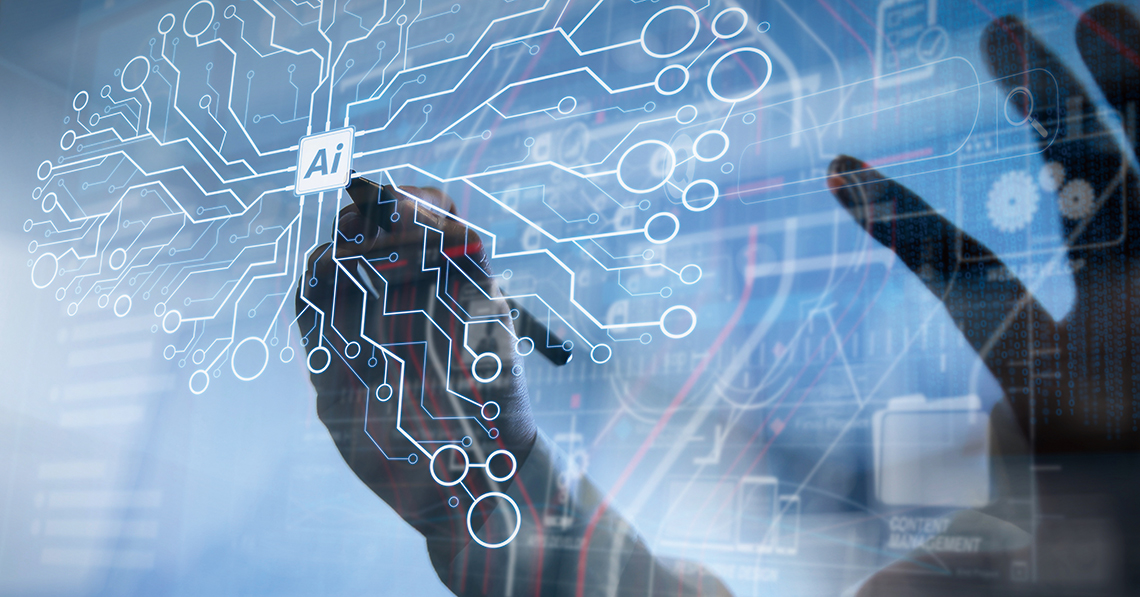
AI Technology Open Workshop: Bridging Academia and Industry
Since the establishment of the Graduate School of Artificial Intelligence, UNIST has been hosting the annual AI Technology Open Workshop. The Workshop, which started with the purpose of sharing the results of UNIST’s latest research, has expanded into an international workshop that includes keynote lectures by distinguished scholars from overseas institutions, and special lectures and panel discussions by domestic industry experts. This workshop is establishing itself as an open academic venue where academic and industry experts can communicate with students and identify the latest domestic and international AI technology trends.
At the workshop held last September, Professor Jean Oh from Carnegie Mellon University in the United States, and Dr. Emtiyaz Khan from RIKEN (Institute of Physical and Chemical Research), a designated National Research and Development Agency in Japan, presented the latest research results related to robotics AI and adaptive AI. From the industry, Director Sangdoo Yun from Naver AI Lab, Managing Director Woohyung Lim from LG AI Research Institute, and President Dongjoo Shin from MOBILINT, delivered special lectures on AI visual recognition technology, AI business models, and the latest trends in AI semiconductors. The panel discussion, in particular, attracted the attention of participating students by covering a variety of topics, from the roles of academia and industry in the AI era, to the competencies of a leader in the AI field must have.
What are the latest trends in AI technology?
AI technology, the core driving force of the 4th Industrial Revolution, is rapidly developing in various fields. One prominent area is computer vision, a field of artificial intelligence that euips machines, such as computers and robots, with visual recognition capabilities akin to those of humans. In traditional research methods, researcher comes up with an idea to solve a given problem, designs it with a mathematical algorithm, and then verifies its performance through experiments. Therefore, the researcher’s ideas and capabilities are the most important in determining the success or failure of research, and it takes a lot of time to obtain a single research result.
However, deep learning technology based on massive calculations is changing the paradigm of AI research by far surpassing the performance of traditional technologies. For example, there is a problem with image classification, which determines what object or a scene it is by looking at a photo. Professor Fei-Fei Li's research team at Stanford University conducted extensive data collection and processing to facilitate the development of deep learning-based image classification technology, which led to the ImageNet Challenge in 2010. At the beginning of the challenge, state-of-the-art computer vision technologies exhibited error rates of approximately 30%.
However, in 2012, AlexNet, an early deep learning model, achieved 16% error rate and won the challenge — far exceeding the performance of traditional technologies. Since then, deep learning-based technology has won the challenge every year. In particular, the performance of ResNet, which won the challenge in 2015, achieved a strikingly low 4% error rate. Considering that the average error rate of human is about 5%, AI technology can thus be said to have already surpassed human-level performance in image classification nearly a decade ago. Since then, deep learning-based computer vision technology is being widely developed in various visual information processing and recognition fields. Recently, in addition to simple image classification, other technologies are also being actively researched: to analyze and recognize even partial details within images; comprehensively improve image-quality when complex degradation occurs in images; reconstruct the space using three-dimensional visual information; express visual information analyzed from images in sentences; or generate images or videos from sounds or sentences.
Meanwhile, recently, Large Language Models, or LLM, which learns artificial neural networks consisting of more than billions of parameters, is also attracting attention. Conversational AI services such as ChatGPT (Generative Pre-trained Transformers) are being used rapidly in various fields, and are changing the ways in which we work and live. A new function that interprets image data by combining vision technology was added recently, and an API to create personalized GPT, which performs given roles and functions in a specific domain, is also provided. However, because large language model-based AI technology learns a large amount of data, there are still limitations, such as accuracy. Research to enhance reliability by analyzing the model’s behavior is also being actively carried out these days.
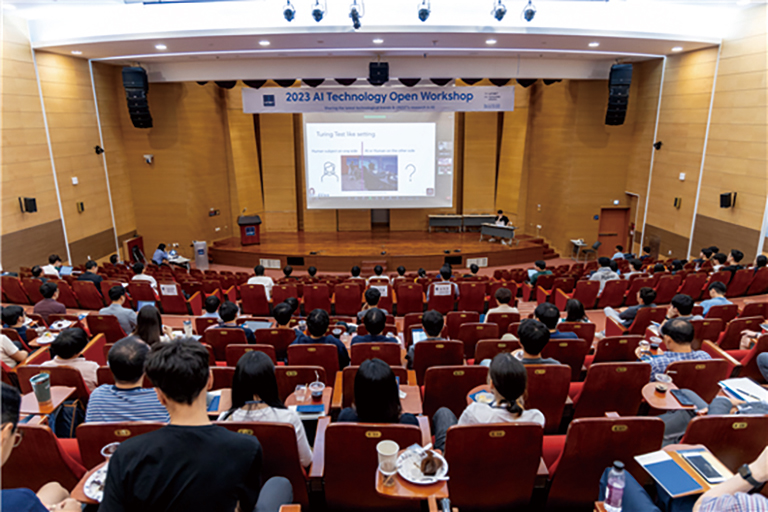
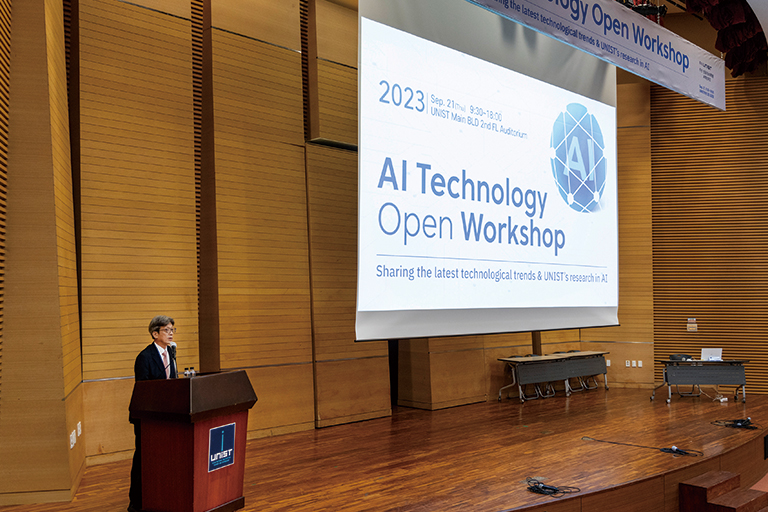
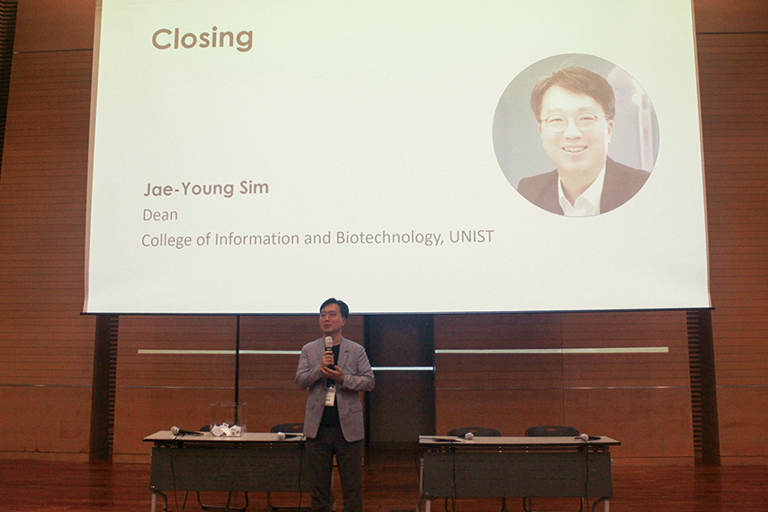
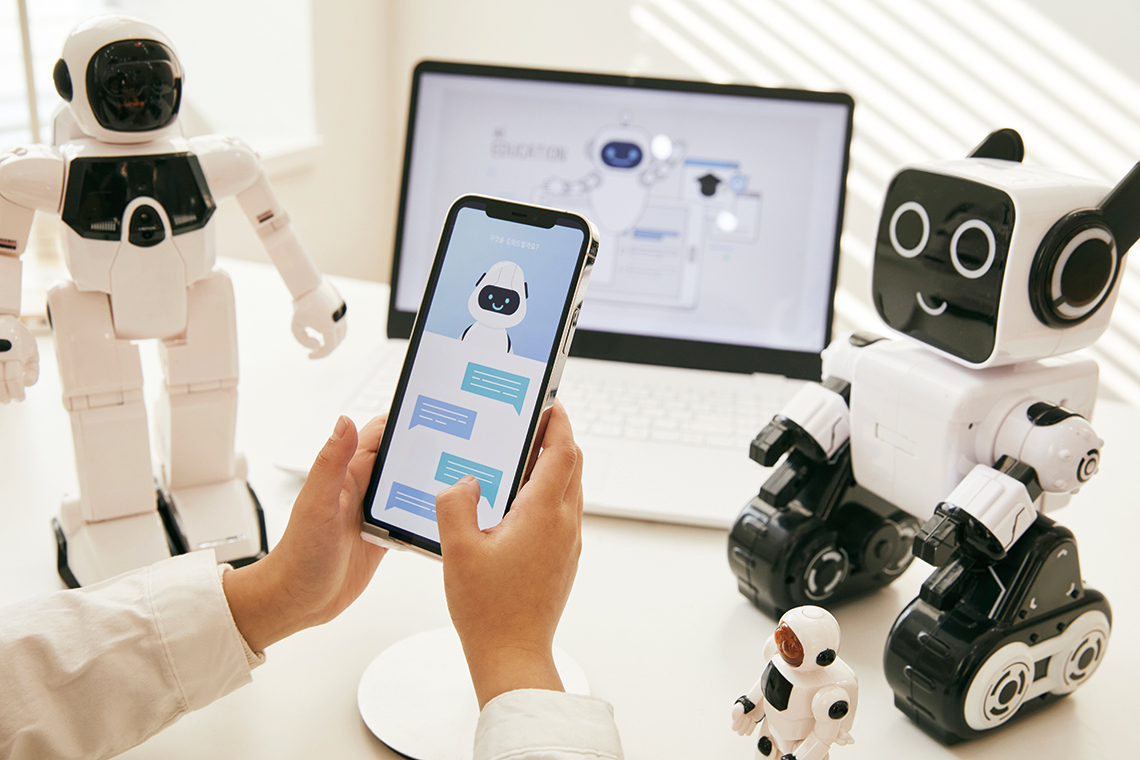
What kind of future will artificial intelligence portray?
As deep learning technology overcomes the problems of traditional technology and changes the paradigms of AI research, we are entering an era where massive data and expensive experimental equipment are becoming more important than researchers’ capabilities. This is related to the current shift from a time when academia was leading the academic field to a time when university professors have recently moved to leading IT companies and the industry is often the first to introduce new AI technologies. However, since it is ultimately the people that develop AI technology, it will become more important for future AI technology research and development for academia and industry to faithfully fulfill their unique roles while at the same time closely exchange and cooperate with each other.
Many researchers are developing AI technology with the good purpose of making human life more convenient. In fact, if the latest technologies mentioned above are realized with high degree of completion, human life will become much more convenient. However, just as the emergence of new technologies throughout human history has always been accompanied by concerns about side effects, we cannot be free from concerns about negative uses of AI technology today. Rather, considering that it can have a greater ripple effects than any other technology in human history, we may face fears we have never imagined before.
On November 17, Sam Altman, co-founder of OpenAI, which developed ChatGPT, was dismissed from the board of directors, but returned after five days later, resulting in a large number of replacement of the board members who led his dismissal. The prevailing interpretation of this ultra-short dismissal and return story is that it stems from a conflict of values regarding whether AI should be actively used for the purpose of pursuing commercial interests or whether it should be developed safely for the public good of humanity.
In the future, it is expected that such conflicts will occur in various places. This will be considered as a process of establishing values for how humans will utilize AI technology appropriately. Through these conflicts, discussions, and trial and error, it is expected that desirable solutions and systems will be found in various forms. Looking back on the history of continuous development of new technologies and efforts to reduce side effects for the advancement of humanity, I believe in the power of humanity for the future of AI technology.
UNIST that will lead the AI field
Since 2019, UNIST has recognized the importance of AI and has made it a key research field. Starting with the opening of the Graduate School of Artificial Intelligence in September 2020, it has established the AI Innovation Park, a regional industrial innovation hub, in 2021 — UNIST is leading the research on cutting-edge AI technologies fostering key talents, and industrial innovation.
With the participation of 32 faculty members from seven departments, the Graduate School has been conducting cutting-edge research to address the major challenges in the AI field. Despite its relatively short history, the Graduate School of Artificial Intelligence has achieved remarkable growth. The school has been actively involved in conducting cutting-edge research to address the three major challenges in the modern AI field — namely, efficient AI, trustworthy AI, and universal AI. Its researchers have presented papers at top academic conferences in the AI field, while its students have won international challenges at renowned conferences, such as CVPR and ECCV.
The UNIST AI Innovation Park was established and is being operated with support from the Ministry of Science and ICT and Ulsan City to serve as an industry-academia cooperation hub that innovates the regional industries through AI-based education and research. One notable accomplishments of the AI Innovation Park is that it has trained 283 industrial workers from 157 companies in the southeastern region of Busan, Ulsan, and Gyeongsangnam-do as AI experts as of 2023 through its “AI Novatus Academia” course. Furthermore, the AI Innovation Park actively identifies AI convergence projects in which the UNIST research team cooperates with the regional companies to solve problems using data from industrial sites.
By developing world-class, cutting-edge AI technology and fostering global talent, UNIST will secure national competitiveness in the era of rapidly changing AI technology hegemony, and establish a differentiated AI innovation ecosystem centered on industrial sites. Through this, it will continue its efforts to contribute to industrial innovation in the southeastern region of Korea, and boosting the national economy. With UNIST at the forefront of AI innovation, the possibilities are limitless, and our future holds great promise.

